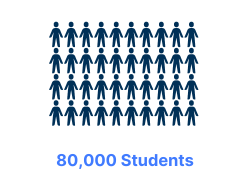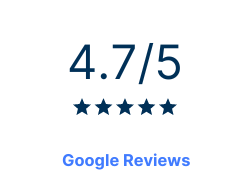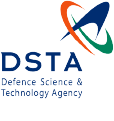
SQL Advanced Course
Take your SQL skills up a level
A crucial skill for anyone working with data is the ability to access and analyse that data. Structured Query Language (SQL) enables users to access data from databases, combine data from multiple, related tables and to aggregate, sort, filter or limit the data retrieved as needed. Our Advanced SQL course will build upon the skills learnt in our SQL Intermediate course.
In this course, students will use more sophisticated techniques for querying databases and reshaping and manipulating result sets. Participants will learn to reshape data by pivoting and unpivoting. They will write more complex queries using subqueries, temporary tables and common table expressions. They will use recursive techniques to query hierarchical data and create date dimension tables. Students will build on their understanding of scalar user-defined functions and local variables to create table-valued functions and use table variables.
Students will also learn to simplify querying and increase their efficiency by using views and stored procedures. Students work with an Azure SQL database and write queries in Microsoft’s Transact-SQL (T-SQL). Much of what is covered will be useful for users working with other database products.
We are currently developing these courses. Please contact us to register your interest.
We are currently developing these courses. Please contact us to register your interest.
We are currently developing these courses. Please contact us to register your interest.
Frequently Asked Questions
Meet your Developer
Tamara Shatar holds a PhD in Agricultural Data Science. She has extensive experience, including many years working as a research scientist focused on data analysis, modelling using machine learning, simulation and other techniques. While working in both academia and at the CSIRO, part of her role included teaching a variety of data analysis skills.
What is Remote Training?
Remote training at Nexacu, means our team of experienced trainers will deliver your training virtually. With remote learning students can access our usual classroom training courses via video conferencing, ask questions, participate in discussion and share their screen with the trainer if they need help at any point in the course. Students have the same level of participation and access to the trainer as they would in classroom training sessions.
SQL Advanced Course Details


SQL Advanced Course Details


SQL Advanced Course Details


SQL Advanced Course Details


SQL Course Outlines
Skills Test
Contact Us
What do I need to know to attend?
This course builds on the knowledge gained and skills taught in our SQL Intermediate course. Students attending this course should have completed our SQL Beginner and Intermediate courses or be very familiar with writing SQL queries.
SQL Advanced Learning Outcomes
Upon completion of this course students will be able to:
- use more sophisticated techniques for querying databases
- reshape and manipulate result sets
- reshape data by pivoting and unpivoting
- write more complex queries using subqueries, temporary tables and common table expressions
- use recursive techniques to query hierarchical data and create date dimension tables
- write more efficient SQL code
SQL Advanced Course Content
- Introduction
- SQL and T-SQL
- Reshaping data
- Use PIVOT to turn rows into columns
- Use UNPIVOT to rotate columns into rows
- Writing More Complex Queries
- Subqueries
- Local and global temporary tables
- Create, modifying and delete temporary tables
- Writing More Complex Queries (cont'd)
- Common table expressions
- Nested CTEs
- Recursive CTEs
- Query hierarchical data
- Create date dimension tables
- More Complex Joins
- Cross joins
- Self joins
- Anti joins
- Semi joins
- Variables
- Local variables
- Table variables
- Temporary tables vs CTEs vs table variables
- User-Defined Functions
- Scalar user-defined functions
- Table-valued functions
- Multi-statement table-valued functions
- Schemas
- Use APPLY to join output from table-valued functions to a table
- Control of Flow
- IF…ELSE
- BEGIN…END
- Simplifying Code Reuse
- Working with views
- Table-valued functions
- Working with stored procedures
- Executing stored procedures with parameters
- Query Performance
- Improving query performance
- Basic principles
- View execution plans
- Temporary tables, views, CTEs and table variables
- Functions
- Reusing code

 Australia
Australia Singapore
Singapore
 Hong Kong
Hong Kong
 Malaysia
Malaysia
 Philippines
Philippines
 Thailand
Thailand
 Indonesia
Indonesia
 phone
phone
 email
email
 enquiry
enquiry
























